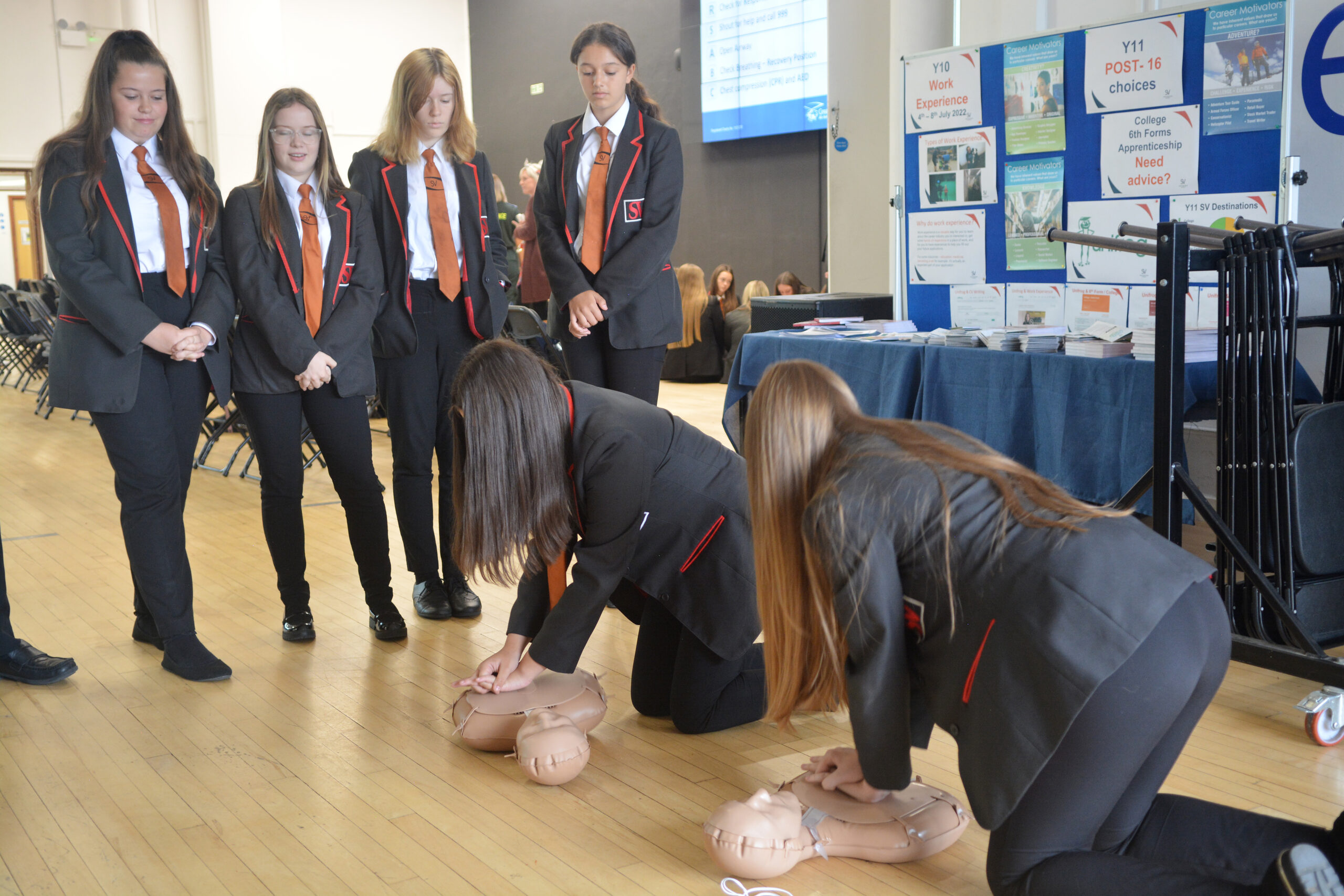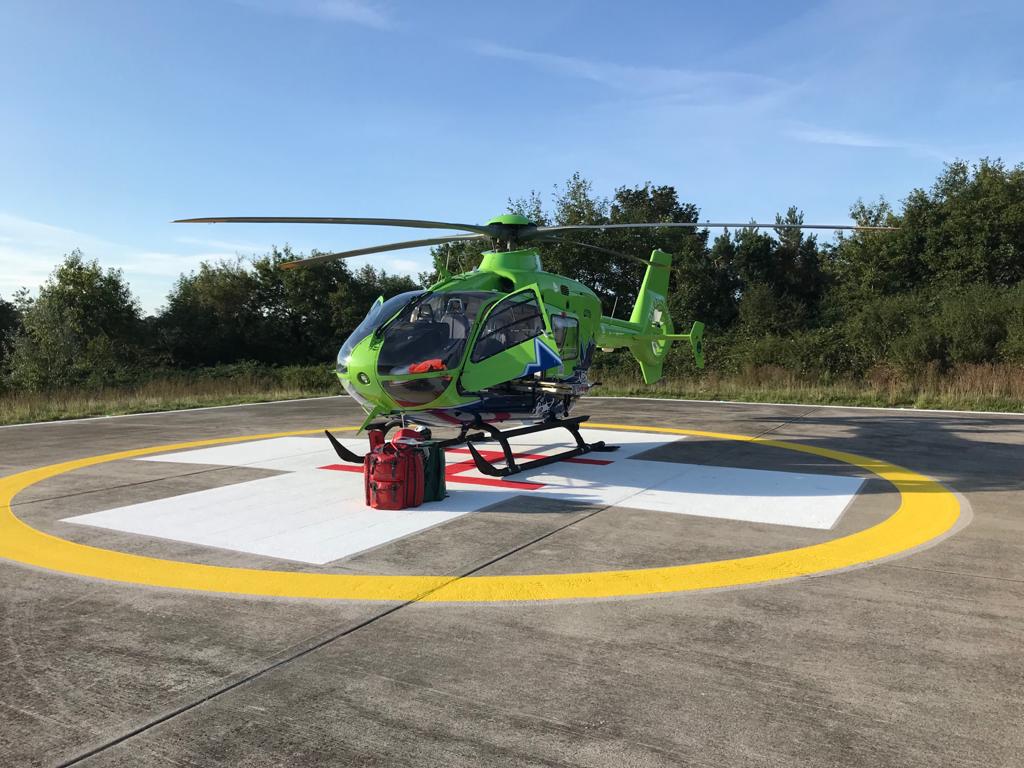
Great Western Heartstarters Revisit Severn Vale School
October 15, 2021
Trauma Day 2021
October 19, 2021When someone collapses and stops breathing normally, it is important to quickly call 999, perform CPR and use a defibrillator. This gives the person their best chance of survival. If reluctant or unable to do rescue breaths, hands-only CPR will still give the person the same chance.
Be confident to intervene! Everyone, in every community, has a role to play in the chain of survival, whether it’s by calling 999, doing chest compressions, locating a defibrillator, retrieving it or by telling others what to do.
There are more than 30,000 out-of-hospital cardiac arrests in the UK every year, and every minute without CPR and defibrillation reduces the chance of survival by up to 10%.
When someone has a cardiac arrest, performing immediate CPR can help double their chance of survival in some cases.3
Most episodes (around 80%) of out-of-hospital cardiac arrest occur in the home, highlighting the potential benefit of family members trained in CPR.4
The chance of surviving a cardiac arrest is tripled when an AED is available via a public-access defibrillation programme.
2) Nolan, J.P et al (2010): European Resuscitation Council Guidelines for Resuscitation 2010, Resuscitation 2010;81:1219-1451.
3) Resuscitation to Recovery, https://www.resus.org.uk/publications/resuscitation-to-recovery/
4) Valenzuela TD, 2. Roe DJ, 3. Nichol G, et al : Outcomes of Rapid Defibrillation by Security Officers after Cardiac Arrest in Casinos. N Engl J Med 2000;343:1206–9. doi:10.1056/NEJM200010263431701 CrossRefPubMedWeb of ScienceGoogle Scholar
Without quick action, the person will die. Check for danger, then immediately follow these simple steps to give the person their best chance of survival:
1. Shout for help.
• Shake them gently.
2.Look and listen for signs of normal breathing.
• Look for the rise and fall of their chest.
3. Call 999. Put the phone on loudspeaker and tell them you are with someone who is not breathing.
4. The ambulance call handler will tell you where the nearest automated external defibrillator (AED) is. If someone is with you, ask them to fetch it and bring it back.
Do not leave the person if you are on your own.
5.Start chest compressions:
• interlock your fingers
• place your hands in the centre of the chest
• push down hard and then release twice per second, and don’t stop.
The ambulance call handler will help you.
If reluctant or unable to do rescue breaths, hands only CPR will still give the person the same chance of survival.
6. If you have a defibrillator, switch it on and follow the instructions. It will tell you exactly what to do.
7. Continue CPR until:
• the AED asks you to pause while it reanalyses and gives another shock if needed
• a paramedic arrives and tells you what to do
• the person shows signs of life.



